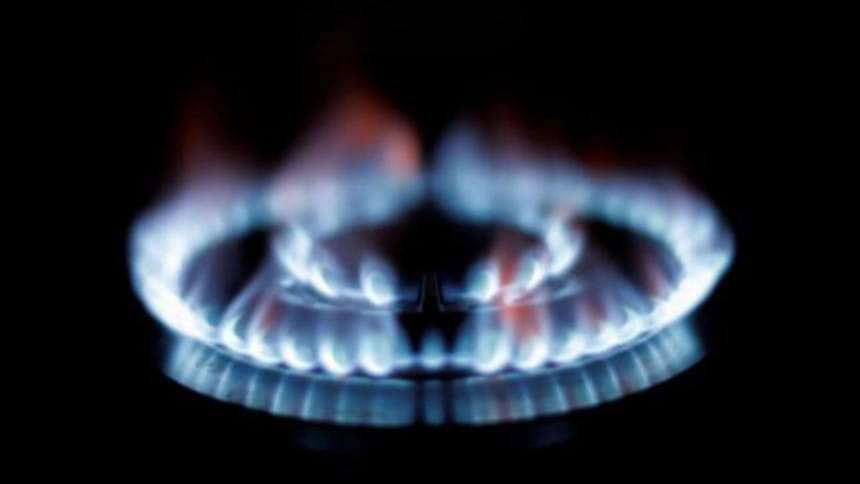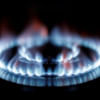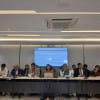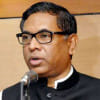Gas price rise to play havoc with economy

The Federation of Bangladesh Chambers of Commerce and Industry (FBCCI) and a number of other trade bodies yesterday joined a growing list of groups and people who are demanding scrapping of the government's plan to increase gas price further.
They called the gas distributors' proposal for doubling the average gas price -- from Tk 7.35 to Tk 14.91 per cubic feet -- unrealistic, saying if implemented, it would wreak havoc on the country's economy.
“We are already under pressure. So, if gas price is increased, it would have detrimental effects on the private sector and the economy,” Shafiul Islam Mohiuddin, president of the FBCCI, told a public hearing at the TCB Bhaban auditorium in the capital.
He was backed by Siddiqur Rahman, president of the Bangladesh Garment Manufacturers and Exporters Association, who said, “There is no scope to raise gas price.
Siddiqur said many industrialists started to get gas connections and were preparing to go into production. At the same time, the proposals were given to raise the price. “But for whose interest will the gas price be increased?”
“If the gas price is hiked at the moment, many factories would shut down.”
The comments came at the second of the four-day hearing organised by the Bangladesh Energy Regulatory Commission (BERC).
Md Shahidullah, secretary general of the Bangladesh Auto Re-Rolling and Steel Mills Association, urged the BERC to refrain from increasing the price because the price of steel and cement would go up manifold if the proposals were implemented, dealing a blow to the ongoing infrastructure development across the country.
Masud Khan, president of the Bangladesh CNG Filling Station and Conversion Workshop Owners Association, said the commission should act for the wellbeing of the common people, not “by instructions from elsewhere”.
All six gas distribution companies -- Titas, Bakhrabad, Jalalabad, Pashchimanchal, Karnaphuli, and Sundarban -- are seeking the price hike at consumer level.
Yesterday's hearing took place on the proposals of Titas and Sundarban. Both the companies have revised their price upwards from the proposals they had earlier sent to the BERC in January.
According to the revised proposals, Titas and Sundarban have demanded 208 percent hike for the gas consumed by power plants, 211 percent for fertiliser companies, 96 percent for captive power plants, 132 percent for industries, 41 percent for commercial entities, and 50 percent for CNG-run vehicles.
They are seeking 80 percent rise in monthly gas bill for both single-burner and double-burner cooking stove, from Tk 750 to Tk 1,350 and from Tk 800 to Tk 1,440 respectively.
The companies are largely seeking the hike because 500 million cubic feet of gas per day (mmcfd) was added to the national grid through the import of liquefied natural gas (LNG) from August last year. More 500mmcfd may be added to the network next month.
Imported LNG is costing the country Tk 39.086 per cubic metre whereas it buys similar amount of gas at Tk 0.7097 from state-run Bangladesh Gas Fields Company Ltd, at Tk 3.0414 from Bangladesh Petroleum Exploration and Production Company Ltd, at Tk 0.2028 from Sylhet Gas Fields and at Tk 2.55 from international companies operating in Bangladesh, according to Petrobangla.
Mohammad Ali Khokon, president of the Bangladesh Textile Mills Association, criticised Titas Gas for emphasising on giving higher dividends to shareholders.
He said the gas supply started to worsen since 2000, and the situation has deteriorated further in the last five years.
He also expressed opposition to the hike of distribution and transmission charges until the current situation improved.
Prof M Shamsul Alam, adviser of the Consumer Association of Bangladesh, termed the hearing unlawful and said those proposals could not be entertained. “We will not accept any price increase.”
He called both the proposals and the hearing unlawful because transmission, distribution or retail tariffs could not be increased twice in a fiscal year as per the BERC law if there was no change in energy price or other factors.
In October last year, the BERC increased the transmission and distribution charges and the distribution companies adjusted the price accordingly.
The government fixes the gas price, but it has not sent any letter to Petrobangla or the BERC asking them to adjust the price following the import of LNG, Shamsul added.
Zonayed Saki, chief coordinator of Gono Shanghati Andolon, said Bangladesh was moving “towards expensive gas” through the import of LNG like it did with electricity by setting up quick rental power plants.
Ruhin Hossain Prince, a leader of the Communist Party of Bangladesh, said households were paying more for the gas than they should have.
He demanded scrapping of the Speedy Supply of Power and Energy Act, under which power and energy-related government contracts are given out.
Nurul Islam, a former professor of the Bangladesh University of Engineering and Technology (Buet), said there was no choice but to increase the gas price.
He demanded more transparency in the companies' activities.
The country is purchasing gas following the Public Procurement Rules, but the same is not being followed when it comes to the energy sector, he added.
BERC Chairman Monowar Islam, who moderated the hearing, said as factories were demanding quick installation of the electronic volume corrector gas metre, the energy ministry should revisit its stance on the issue.
BERC members Rahman Murshed, Mahmudul Huq Bhuiyan, Md Abdul Aziz Khan and Md Mizanur Rahman were present.

 For all latest news, follow The Daily Star's Google News channel.
For all latest news, follow The Daily Star's Google News channel. 








Comments